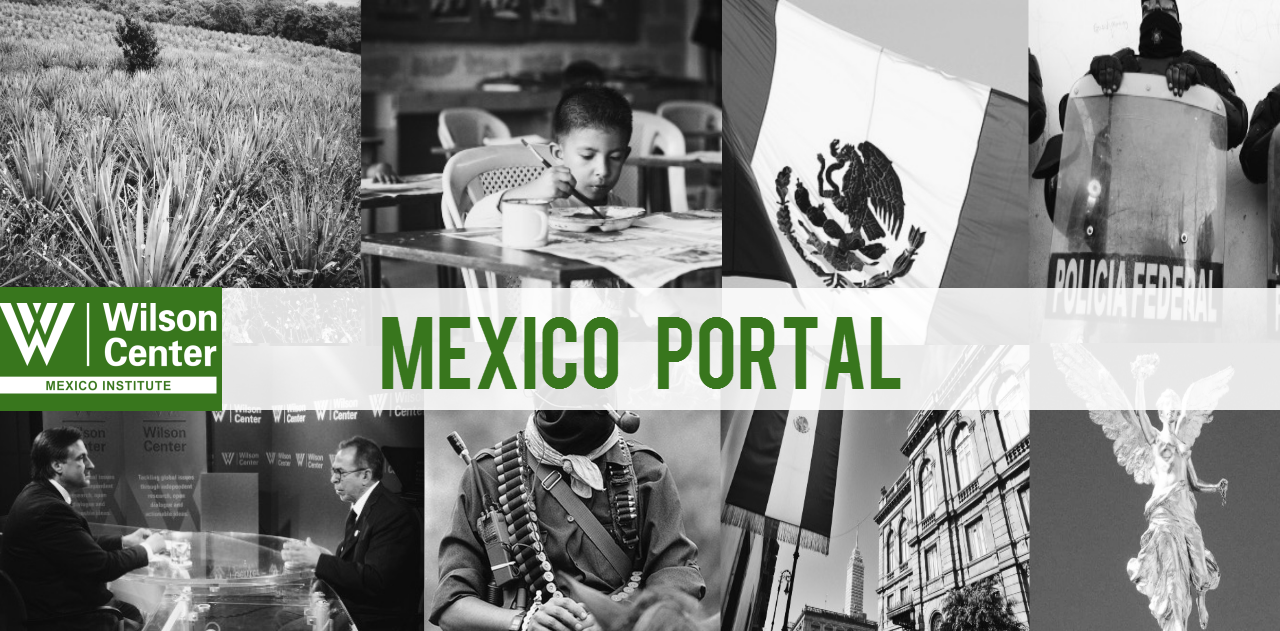Andrew Selee, The Mexico Institute’s Elections Guide, 7/2/2012
 1.- The PRI won decisively but did not get the mandate it wanted.
1.- The PRI won decisively but did not get the mandate it wanted.
2.- The PRD lost the presidency but showed that the Left has mobilizing power.
3.- The PAN couldn’t overcome its internal divisions and doubts about its performance.
4.- All the political leaders rose to the occasion in unexpected and highly positive ways.
5.- Mexico will continue to be a competitive democracy with significant checks and balances.
1.- The PRI won decisively but did not get the mandate it wanted.
PRI presidential candidate Enrique Peña Nieto appears to have won the election by around 6%, which is a decisive victory over the other contenders. However, he only won around 38% of the vote, roughly what President Calderón won in 2006 and far less than most polls prior to the election predicted. It’s a clear victory but not a resounding one. Early results appear to suggest that the PRI will have a majority in the lower House but perhaps not in the Senate. Unquestionably a good night for the PRI and for Peña Nieto, but not the knock-out most of the party faithful’s expected.
2.- The PRD lost the presidency but showed that the Left has mobilizing power.
Most political analysts had left PRD candidate Andrés Manuel López Obrador for dead at the start of the campaign; he couldn’t seem to even reach 20% in the opinion polls. All signs are that he finished above 30% and won a significant majority in Mexico City, the country’s political and cultural center, and large pluralities in several other states (including several that were unlikely wins for a leftist candidate, such as Puebla, Quintana Roo, and Tlaxcala). The PRD won the mayor’s office in Mexico City again with over 60% of the vote, and took the governorship in Morelos and probably Tabasco. Overall, it wasn’t a bad night for the Mexican Left, even though they lost the biggest prize, and it suggests that the PRD and its allied parties may have more resonance in Mexican society than many analysts believe.
3.- The PAN couldn’t overcome its internal divisions and doubts about its performance.
The PAN had a rough night, winning only a quarter of the vote nationally. The party continues to have significant bastions of support around the country, and did far better in Senate races, but the poor third place performance appeared to confirm that Mexicans are disappointed in the direction the country is going and unimpressed with the idea of continuing with the PAN for another six years. Internal divisions within the party clearly played a major role in the party’s collapse in this election as well.
4.- All the political leaders rose to the occasion in unexpected and highly positive ways.
Mexican politicians are usually criticized for their self-serving leadership style, but on election night, all of the major players rose to the occasion in unexpected — and very heartening — ways. Josefina Vázquez Mota conceded defeat in a particularly gracious and eloquent speech early in the night. President Felipe Calderón called Enrique Peña Nieto to congratulate him and offered a smooth transition in his public address. Andrés Manuel López Obrador, who most thought would take to the streets claiming fraud, gave short remarks saying that he would wait for the final results on Wednesday before deciding what to do — almost certainly taking any air out of a possible resistance campaign by his supporters. And Enrique Peña Nieto was somber and thoughtful rather than triumphalist, praising President Calderón and all his opponents, recognizing the concerns of the student movement, and calling for action to move Mexico forward. It was a surprising display of maturity by all sides in a contentious election.
5.- Mexico will continue to be a competitive democracy with significant checks and balances.
Mexicans voted to give the presidency back to the PRI, a party that has pledged to get things done, but they also gave the PRD and the PAN a significant voice in the future of the country. The PRI takes over knowing that it has to respond to the doubts of the students who protested Peña Nieto’s campaign and the more than six out of every ten Mexicans who didn’t vote for Peña Nieto. At the same time, the PAN and PRD will have to learn to be responsible opposition parties, trying to shape the country’s future and hold the PRI accountable. This is a win for Mexican democracy and for de facto checks and balances in the political system. And perhaps the most important figure of the evening is this: 62% of Mexicans voted, a historic high point, which means that politicians know that citizens will be watching what they do.

This analysis completely omits mention of the numerous illegalities that plagued the election, including vote buying, exceeding campaign spending limits, violence, theft of ballot boxes, etc., that plagued the elections–all well documented in the Mexican and international press.
In my opinion, analyses of the results that overlook a deeply flawed process contribute to a false illusion of democratic normalcy in Mexico.
The author of the post mentions the need to “hold the PRI accountable”, but the institutions charged with maintaining the integrity of the electoral process–specifically, the Special Prosecutor for Electoral Crimes (Fepade), the Federal Electoral Tribunal (Trife), and the Office of the Attorney General (PGR)–manifestly failed to do this. Given Mexican institutions’ inability or unwillingness to check rampant impunity, holding the PRI accountable will prove even more difficult than it already has. If massively corrupt, repressive governors like Mario Marín (Puebla), Ulíses Ruiz (Oaxaca), and Humberto Moreira (Coahuila) already get off scot free, having the PRI in the Pinos with a majority in Congress truly bodes ill for the future of accountable government.
LikeLike